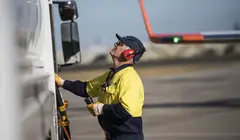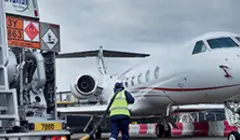This year, the Summer Olympics will be hosted in Paris, France, from July 26th to August 11th. Any restrictions put in place for aviation will be detailed in a dedicated aeronautical information publication (SUP AIP), scheduled to be released between the end of April and early May. However, there is some information that is known today. This resource article concentrates on business and general aviation (BGA) and will be updated as new information is released leading up to the games.
This article will be updated as new information becomes available. If you are planning a trip to the Olympics, try to plan ahead, stay flexible and patient, and expect higher-than-normal prices. For more information or help setting up a trip, feel free to contact the Trip Support team at [email protected].
Known Airspace Restrictions
Per French DGAC, they are closing Parisian airspace during the Opening Ceremonies on July 26th. The no-fly zone will be from the ground to unlimited out to 150 KM from the city center and valid from 1900L-2359L (1700Z-2159Z). Only emergency flights will permitted in the restricted area during this time.
Slots and Parking – What we know so far
All Paris airports, including Charles de Gaulle (LFPG), Orly (LFPO), Le Bourget (LFPB), and Beauvais (LFOB), will be inside the closure radius on the 26th, so there will be no flights in or out during the period, even for heads of state. Also, slots will not be issued for these airports between 1530Z and 2200Z.
LFPG and LFPO are commercial airports without any BGA facilities or services, and parking is not possible. The only BGA flights permitted are quick turnarounds for VVIP passengers transferring to/from commercial flights. During the Olympics specifically, these two airports will see an increased number of flights due to visiting Heads of State and the arrivals and departures of the Olympic teams. Therefore, unless a flight falls into these categories, don’t plan on using these airports.
Slots will be in effect for the rest of the games, with LFPB specifically slot coordinated between July 12th to September 16th. Slot requirements at other BGA-accessible nearby airports will vary.
While specifics are not yet known on how to apply, how many can be had by an operator, etc., it is expected that they will be issued on a “first come, first served” basis. Nothing has been mentioned about slot tolerances at this point, but it would not be surprising if they are very tight so as to accommodate as many aircraft as possible. Keep this in mind when planning flights. Parking will be at a premium and, again, is expected to be “first come, first served.” If you are able to get slots but not parking, which is highly likely, reposition to another French airport or even to another neighboring country. Once you have slots and/or parking confirmed, don’t change the schedule. Doing so could result in losing one or both reservations.





















